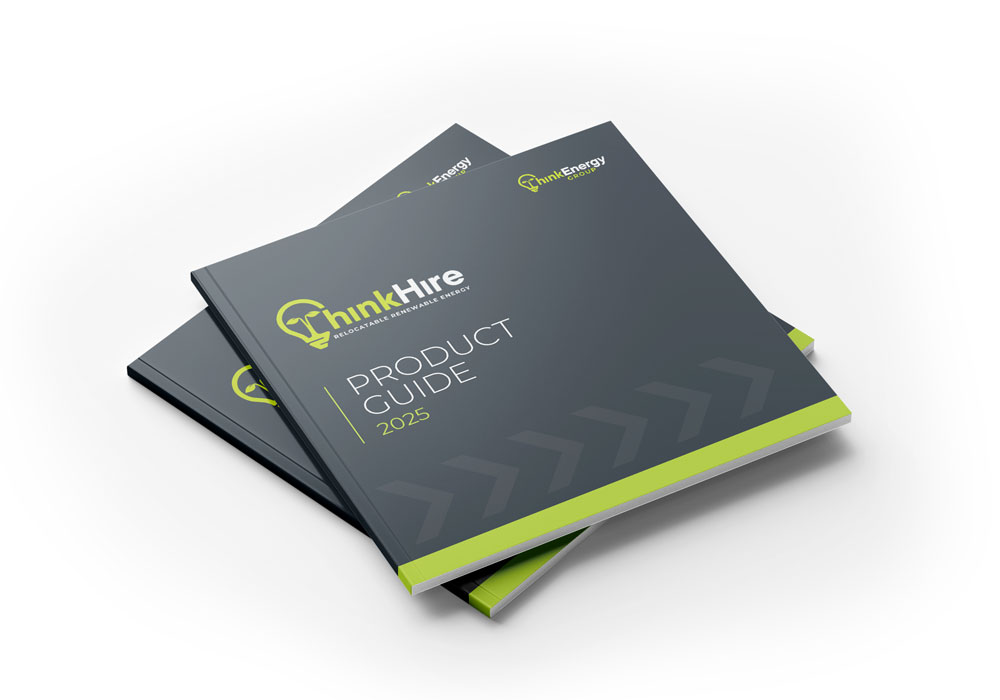Will SRM Steal the Sunshine From Solar Powered Generators?
Date: 19/05/25

Here at Think Hire, we offer a range of renewable energy technologies, including hybrid solar powered generators. These utilise the power of the sun to reduce our dependence on fossil fuels, and thus cut our CO2 emissions. But the latest Government funded research is taking a rather different approach to the sun, by investigating ways of blocking it from reaching the surface of the Earth in the first place.
Why block the sun?
On the face of it, blocking the sun – or Solar Radiation Modification (SRM) to give it its scientific title – seems to make sense. If the planet is warming, then blocking the source of that warmth is a logical step. Reflect the sunshine, and you avoid the rise in global temperatures that are threatening the 1.5°C limit agreed in Paris in 2015.
No less than £60 million of research funding was granted to this field recently, by the Advanced Research and Innovation Agency (AIRA) as part of the Exploring Climate Cooling Programme. This research includes looking at ways to thicken Arctic sea ice to reflect more sunshine, brightening the clouds out at sea and dispersing aerosols high up in the atmosphere to create more reflective clouds.
One of the projects will even use computer models to see if shading the Earth using vast mirrors or giant umbrellas in space would work.
The problems with SRM
As you might imagine, many leading scientists are extremely wary of messing about with the delicate balance of nature in this way. Some warn that changing the climate in one location, will simply move the problem elsewhere.
Others point out that we should be treating the problem rather than tackling the results. Our priority should be to avoid adding any more carbon to the atmosphere, by using green technologies like solar powered generators, as well as removing as much as possible of the carbon that is already out there. Like with any disease, simply treating the symptoms, by blocking the sun, is not the same as curing the illness.
What has been the reaction?
Although there is no international law governing this kind of technology, Solar Radiation Modification projects have been outlawed in a number of American states, including Florida and Tennessee.
Here in the UK, experts are keen to learn more. "There is a critical missing gap in our knowledge on the feasibility and impacts of SRM,” explains ARIA programme director Mark Symes. “To fill that gap requires real-world outdoor experiments". Sarah Hunter, Chair of ARIA's Ethics and Social Responsibility Committee agrees, stating that: "This cooling programme is a vital piece of research.”
Solar powered generators
Here at Think Hire, we believe that it’s far more practical, and much less complicated, to use the energy of the sun to run hybrid solar powered generators in order to combat climate change. Installing portable solar powered generators is quick and easy, and doesn’t have any negative, knock-on effects for the climate elsewhere in the world.
In fact, the only difference you’ll notice will be in your bottom line. Solar powered generators can be used as a direct replacement for conventional diesel generators, with the hybrid design delivering the same dependable, reliable power for your site. Solar powered generators are a like-for-like swap on almost metrics, except for your running costs, which, as our case studies show, will be around 60% lower on a typical site.
If you’d rather use the sunshine than block it, and cut your running costs in the process, talk to the team at Think Hire about our proven hybrid solar powered generators today.
Because when it comes to fighting climate change, Think Hire is a ray of sunshine in the gloom.
